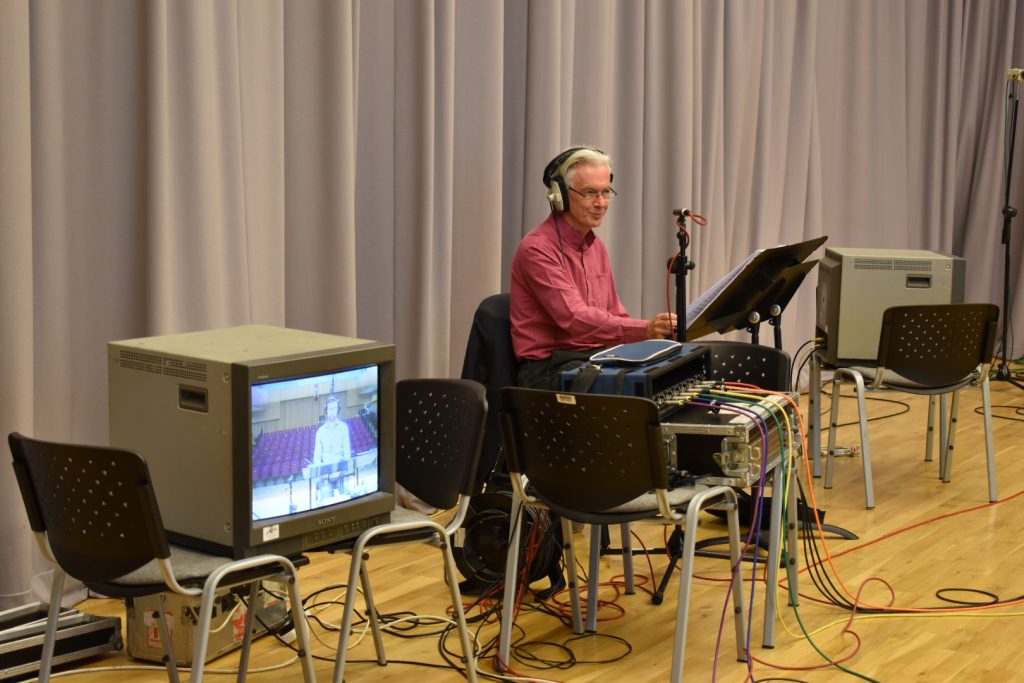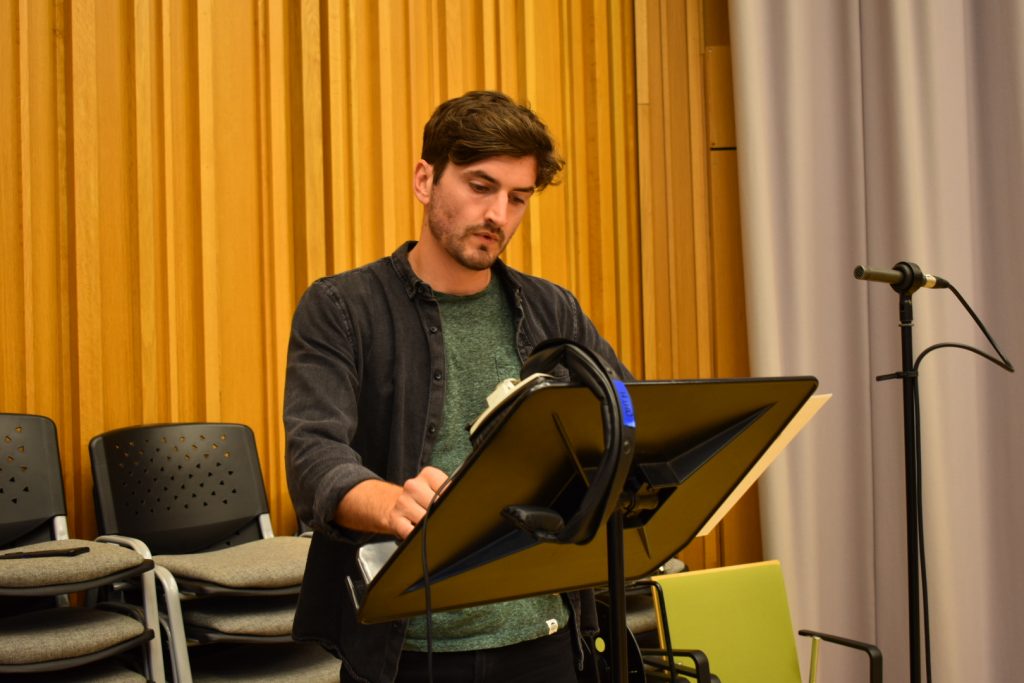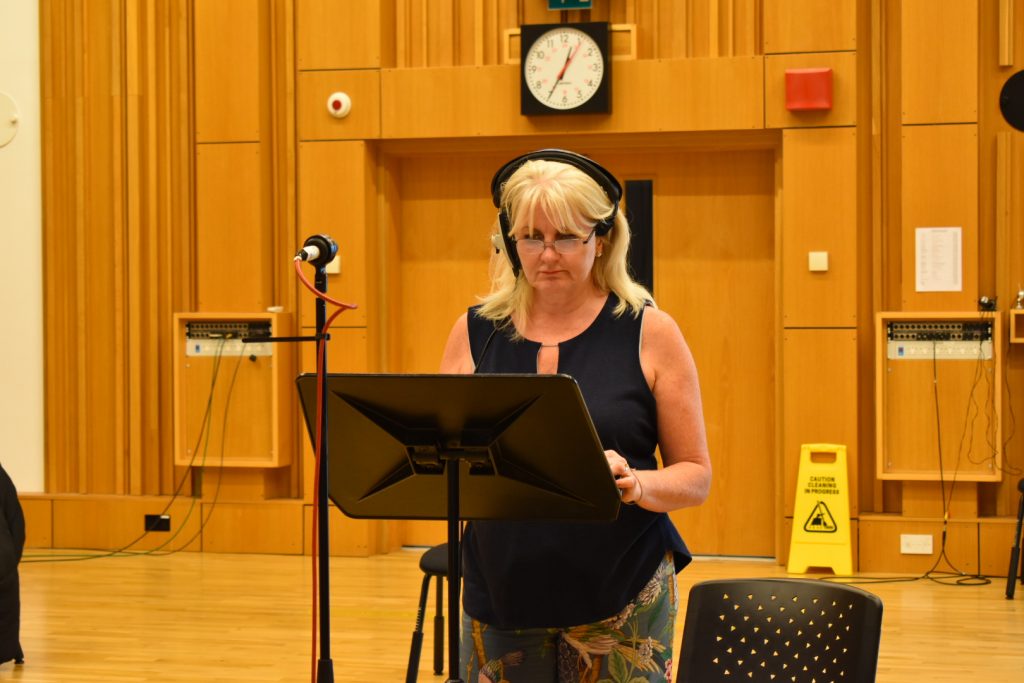I’ve been composing to commission for over 40 years now, in about as many genres as you could shake a baton at, but had never written an opera.
Not, that is, until 2014 or thereabouts, the time when the BBC finally dispensed with my services as the presenter (since the late 70s) of the daily radio current affairs programme Post Prynhawn.
One evening I was at a dinner hosted by Bangor University, seated at the same table as the Pro Vice-Chancellor Wyn Thomas. He asked me – as one might – what I was going to do with my time, now that I could devote it all to composing. Unknown to my conscious mind, I had a ready answer – ‘I’d like to compose an opera’. After all, I said, given that I’ve written a good deal of vocal, choral, orchestral and dramatic music, why not combine them all?
Much to my surprise and delight (and, I have to say, initial incredulity), Wyn said, ‘you write one, and I’ll make sure it gets staged’.
Four years later, my first opera, Wythnos yng Nghymru Fydd (A Week in a Future Wales), to a libretto by Mererid Hopwood, was touring the country to gratifying reviews and unexpectedly large audiences, in a production by OPRA Cymru, the company set up by Patrick Young for the purpose of staging operas in the Welsh language. It was no surprise to me, following the success of the tour and its Wales Theatre Awards for Best Welsh Language Touring production, that Patrick soon contacted me to ask what my next opera would be.
Now I hadn’t hesitated before choosing the source for Wythnos…, it being a novel which had deeply affected me when I first read it as a teenager (and I was by no means alone in having this experience from reading Islwyn Ffowc Elis’s iconic and part-dystopian novel about the choice of two futures for his country), but I knew it would be utterly impossible to even consider, for my next attempt in the form, the second on the list of The Novels That Most Affected Me, namely Caradog Prichard’s semi-autobiographical masterpiece Un Nos Ola Leuad (One Moonlit Night). After all, it has no plot, has too many characters for an opera, leaps about chronologically, contains passages in a style that’s puzzlingly utterly different to the rest of the book, and that’s just for starters.
So Patrick and I, and OPRA Cymru’s Musical Director Iwan Teifion Davies, spent days researching other possibilities. Then, after a brief discussion, we chose – yup – the semi-autobiographical masterpiece. (I suppose I always knew we would, if truth be told.)
Patrick Young
Huw Ynyr
Leah Marian-Jones
Fflur Wyn
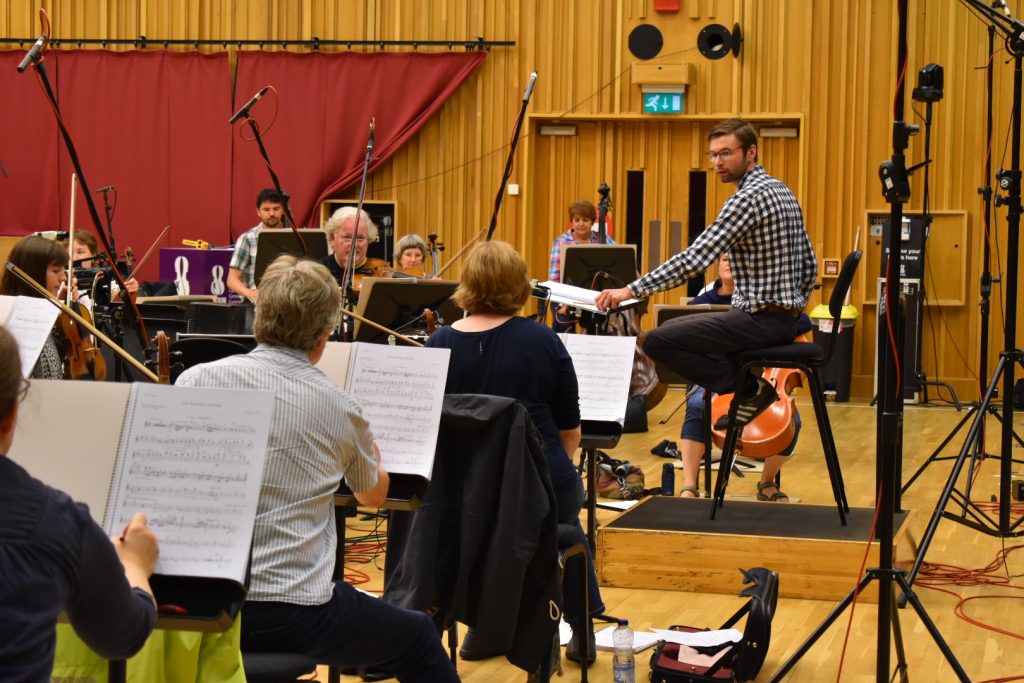
Iwan Teifion Davies
Elin Pritchard, Rhys Meirion, Robyn Lyn Evans and Sion Goronwy
Paul Carey Jones
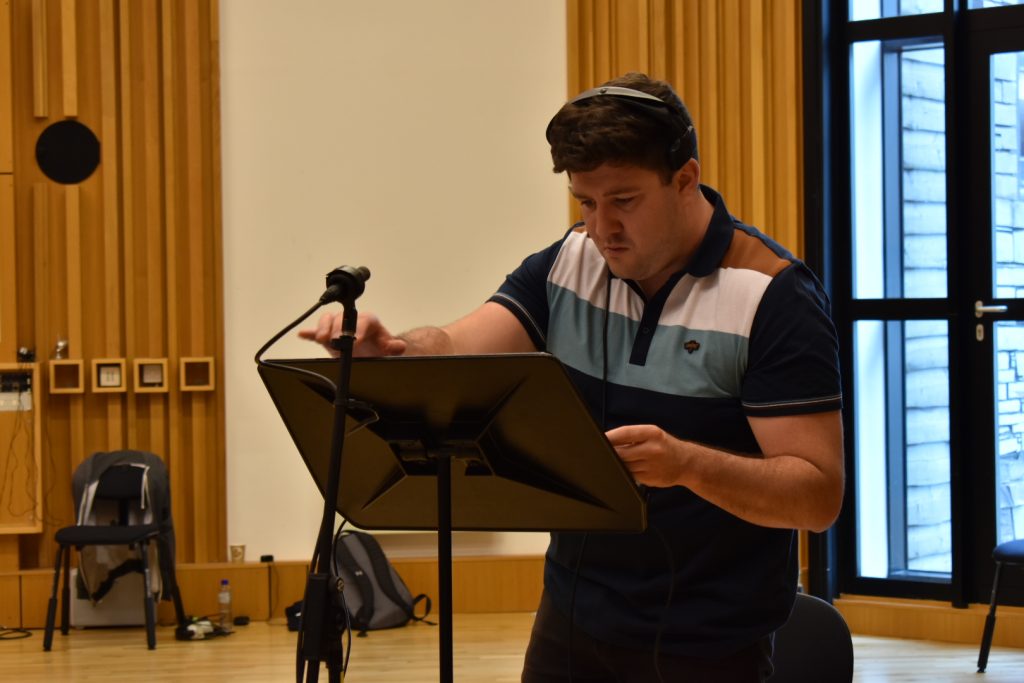
Emyr Wyn Jones
The novel is, memorably, written in the first person, in the dialect of the quarrying village of Bethesda; it’s mostly set in the period of the First World War and has as its main character a boy who witnesses the confining of his mother in a lunatic asylum, and it is the various recollections of the boy as a man returning to the area that underpins the structure of the work.
The descriptions of these seemingly random memories introduce dozens of characters in a profusion of locations.
Accordingly, we had our work cut out over the couple of years following our choice of source material, as we discussed what to leave in, what to take out, whether we could really include The Boxing Match Scene or The Football Match Scene; which characters (a lot) wouldn’t survive the cull; what to do with two much-discussed mysterious quasi-Biblical sections…
At one point Patrick and Iwan came up with the script for one scene, but after I’d set it to music it turned out to be fully 25 minutes long. At that rate the full opera would detain an audience for something like seven hours, so that was a big lesson in the need for concision.
Eventually, after many (often radical) rethinks, we came up with an opera of 15 scenes with 21 characters plus a chorus, and by early 2020 our minds had started to turn to the prospect of rehearsals followed by a tour of venues in Wales and beyond.
Ah. ‘Early 2020’ says it all. We had to face the possibility that for the foreseeable future the opera would exist only as dots and words on paper.
It was a terrible time for the performing arts in Wales, as everywhere; but it eventually became apparent that – even under Covid rules – opera could be made to work in filmed versions, and that’s when it was decided that ours could be adapted for that purpose. Things developed very quickly after that – leading opera singers, long deprived of work, were eager to take part; Welsh National Opera offered the use of their orchestra and chorus; arrangements were made to record the soundtrack of the opera.
Though it seemed impossible to abridge the libretto any further – this time to a duration acceptable as a TV production – once again Patrick and Iwan came up with the goods in the form of a slimmed down, 100-minute version. In the original for staged performance, most of the singers were called upon to play at least two rôles, as some of the characters appeared only fleetingly; but the film version enabled the production to make the most of these brief appearances by stipulating that these rôles be taken by different singers, as cameos. This had the advantage of enabling us to engage a larger number of singers, some of whom would not have had the time to learn substantial parts. It also meant that some of the singers needed to be present for only one recording session, which was, I believe, one of the reasons why we were able to secure the services of so many leading professional opera singers. They are all first-language Welsh speakers, which is a credit to the development and success of the training and performing opportunities available to aspiring singers in Wales over the past few decades, a development which has given me great joy to witness.
And so, in a fine week at the end of July 2021, coincidentally the month of my 70th birthday (not to mention the 60th anniversary of the first publication of the novel), singers came in twos and threes to their allotted recording sessions in Hoddinott Hall in Cardiff.
The need for the orchestral and sung tracks to be isolated from each other meant that the singers had not only to stand well apart from each other because of social distancing, but also to be separated from the orchestra by being in a completely different room; watching Iwan’s conducting on a small monitor screen; and hearing the orchestra only through headphones. Given also the absence of the live audience they would have had in an opera house, their wonderfully inspired performances are testament to their complete professionalism.
As I write this, all that’s left in order to complete the soundtrack is the recording of the WNO chorus, and, later, a children’s choir. The hope then is that we move forward to the filming of the opera, ideally on location, with the cast members singing ‘live’ to the orchestral playback.
As things stand, OPRA Cymru is discussing the possibilities with S4C, Channel Four and others. Watch this space!
